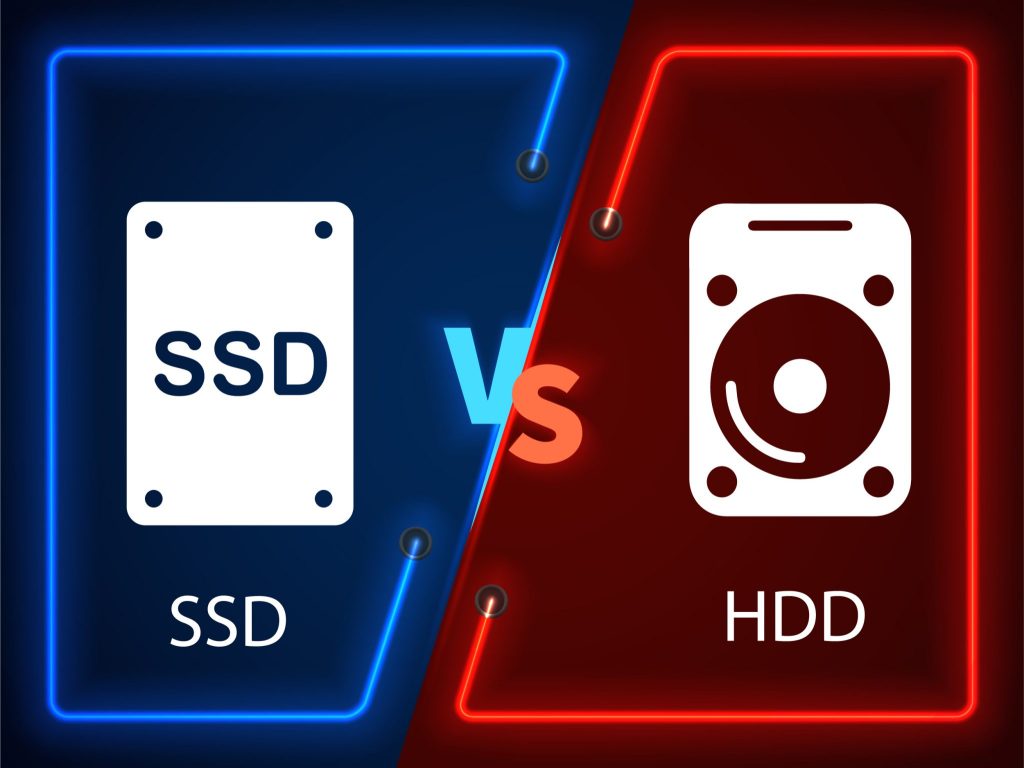
Agile hosting services are becoming increasingly important to modern enterprises. It has become clear that the quality of hosting will affect the success of various critical factors, including SEO, bounce rate reduction, client retention, and, to some extent, sales numbers. Given the importance of these criteria in determining a company’s performance, businesses have began to seek out faster and better hosting services.
Companies no longer rely entirely on the solutions supplied by their website developers. Companies nowadays investigate the greatest potential options and evaluate what would be beneficial for them. While most businesses have already transitioned from shared to VPS hosting, forward-thinking businesses are delving deeper to evaluate the benefits of SSD vs HDD VPS hosting. Let us try to figure out what the difference between a Solid-State Drive and a Hard Disk Drive is, as well as your best selection.
Difference between an SSD and HDD VPS Hosting
Mechanism
Before delving into the differences between SSD and HDD, it is critical to understand how both technologies work. The hard disc drive (HDD) is a decades-old technology that is based on the mechanism of vinyl records. The HDD drive stores data magnetically in patterns. To record and read data, it uses a thin metal disc that rotates at 7200 RPM. Each driver is outfitted with sensors that can read data and send it back to the motherboard.
The issue derives from the fact that the disc will spin around 3.8 billion times per year, resulting in wear and tear and, eventually, mechanical failure. SDD, on the other hand, does not have any moving parts. Data is stored on interconnecting flash memory chips. It can be thought of as a larger and more advanced version of normal pen drives. SSDs employ NAND-based flash memory, which makes them more secure even when the device is turned off.
Speed
The functioning mechanism has a considerable impact on the results of SSD vs HDD Speed testing. Because HDDs have moving parts, they have slower read and write speeds than SSDs. SSDs, thanks to their NAND flash memory, may achieve extremely fast read and write rates. When compared to SSD, the rotational delay of HDD results in slower speeds.
It goes without saying that hosting servers using SSD will deliver faster speeds than service providers using HDD storage. A faster-loading website will significantly help your SEO and Google rating. In calculating ranks, search engine algorithms consider the loading speed of a website. Websites with faster loading times are rewarded by Google and other search engines because they give a better customer experience.
A faster-loading website also provides a better client experience because it allows them to navigate without lag or waiting time. Furthermore, with users’ attention spans decreasing as internet speeds increase, you have a limited window to captivate a buyer before they transfer to another website. SSD web hosting ensures that your customers are thrilled to visit your site and use your products or services.
Data Security
Another critical factor that might have a negative impact on your firm is data security. In contrast to the production environment, the hosting servers are operational 24/7. Overloading hardware with I/O requests can cause the hard drive to fail. A failure of this magnitude could force your website to go offline, raising concerns about the recovery of your data. While most data centres have a backup of the data, there is still the potential of losing it due to unforeseen reasons. It should be noted that the cost of data recovery with HDD is higher than with SSD.
SSDs have faster processing times, which reduces the likelihood of failure owing to higher I/O demands. These also do not have any mechanical parts that could wear out over time and cause mechanical failure. As a result, with SSD VPS hosting, your data is incredibly secure.
Environmental Factors
When compared to the power consumed by HDD drives, the use of SSD drives in data centres leads in lower power consumption. This is owing to the fact that the latter generates heat due to mechanical moving parts and requires more energy to cool down. The SSD drive, on the other hand, does not produce any heat while operation. Aside from helping the environment, choosing SSD VPS hosting will help you save money because the plans are less expensive.
Conclusion
The benefits listed above clearly show that hosting your website with SSD-based VPS Hosting will have long-term benefits for your business. But, before upgrading to SSD VPS hosting, you must first assess your organization’s demands. You may not realise significant gains if you have an HTML-based static site. However, if your firm has a high-performance website with substantial daily traffic, SSD VPS Hosting would undoubtedly help you.





